VANDERBILT
Explore milestones in Vanderbilt’s history
1870
1873
FOUNDING
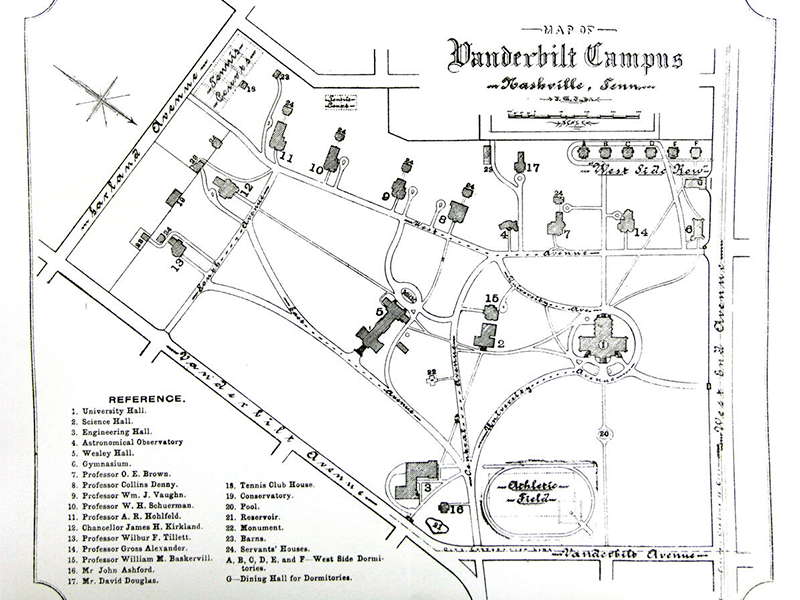
1873
CAMPUS SITE
The campus site was selected “west of the city,” for its beautiful location, ease of access, and proximity to Capitol Hill. The original site of about seventy-four acres were where the first buildings were constructed, which at the outset consisted of one Main Building (now Kirkland Hall), an astronomical observatory, and houses for professors.
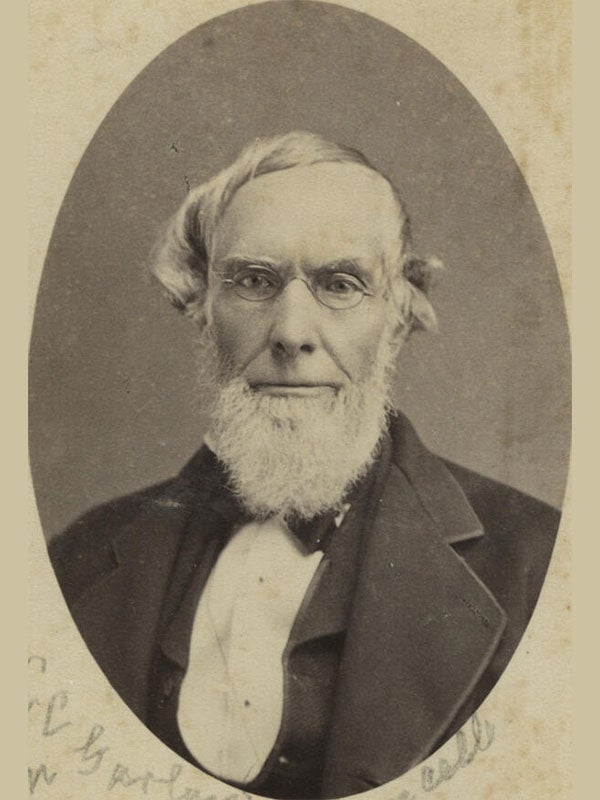
1875 - 1893
CHANCELLOR GARLAND
Landon C. Garland served as Vanderbilt’s first chancellor from 1875 – 1893. Under Garland’s plan, Vanderbilt had four departments (schools in the present sense): Biblical; Literature; Science and Philosophy; Law and Medical.
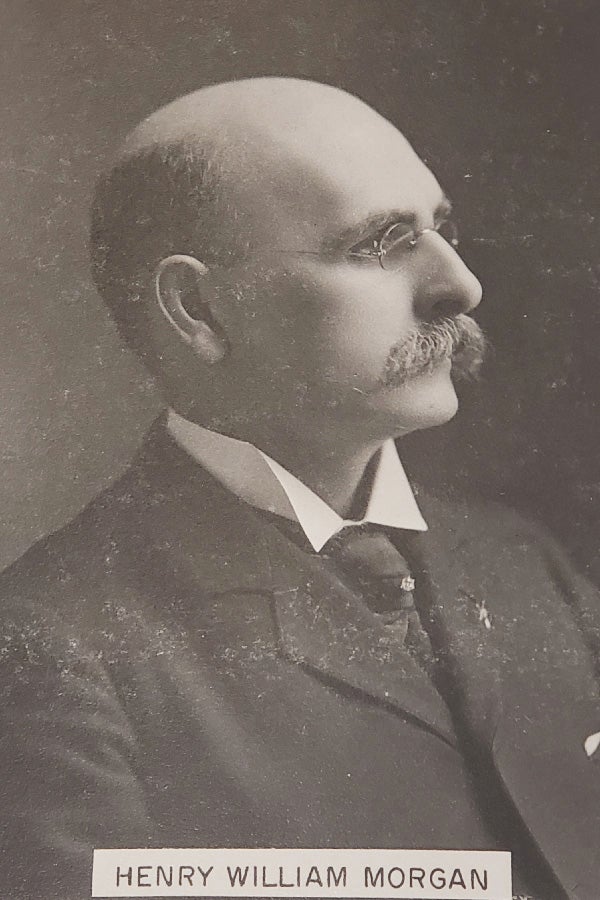
1875
FIRST DIPLOMAS
The first Vanderbilt diplomas were issued to sixty-one Doctors of Medicine on February 25, 1875. This early start was due to recognizing an existing medical school, operating under the University of Nashville, as the medical school of the new university. Later that spring a degree was awarded to one graduate of the School of Law, which also began in quarters off of the main campus.
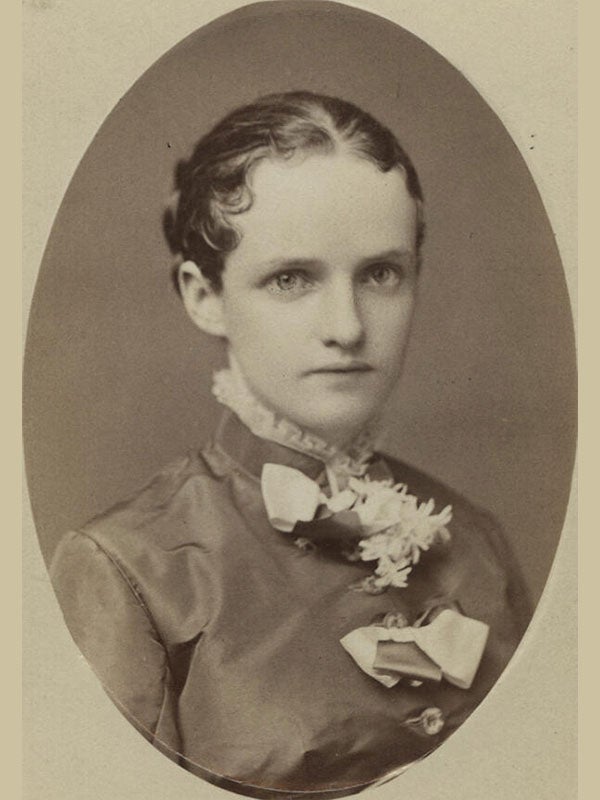
1879
FIRST WOMAN GRADUATE
Kate Lupton Wilkinson received her diploma in private in 1879, silently breaking the gender barrier as she became the first woman to graduate from Vanderbilt.
1880
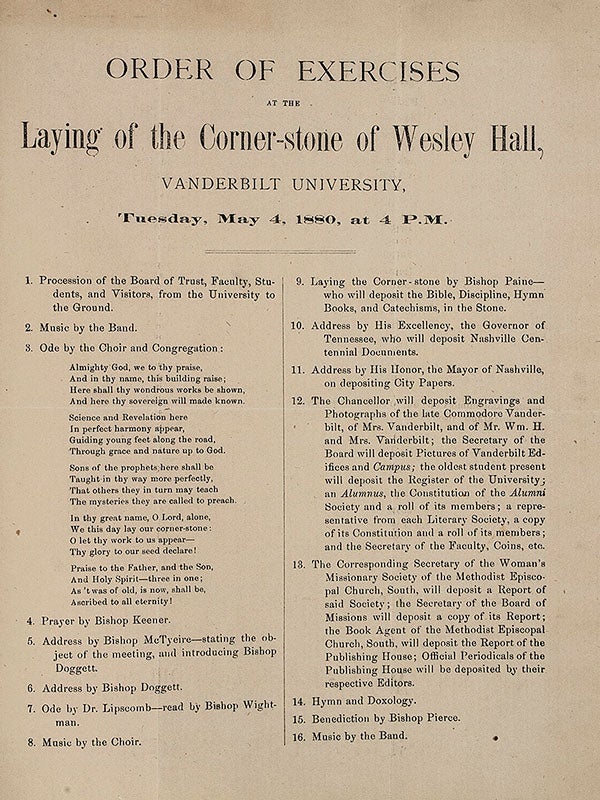
1880
WESLEY HALL
On May 4, 1880, the cornerstone of Wesley Hall was laid at a ceremony. Tennessee governors, the University Board of Trust, faculty, students and visitors attended the ceremony. Wesley Hall was the center of social life on campus between students and faculty until it burned down on February 19, 1932.
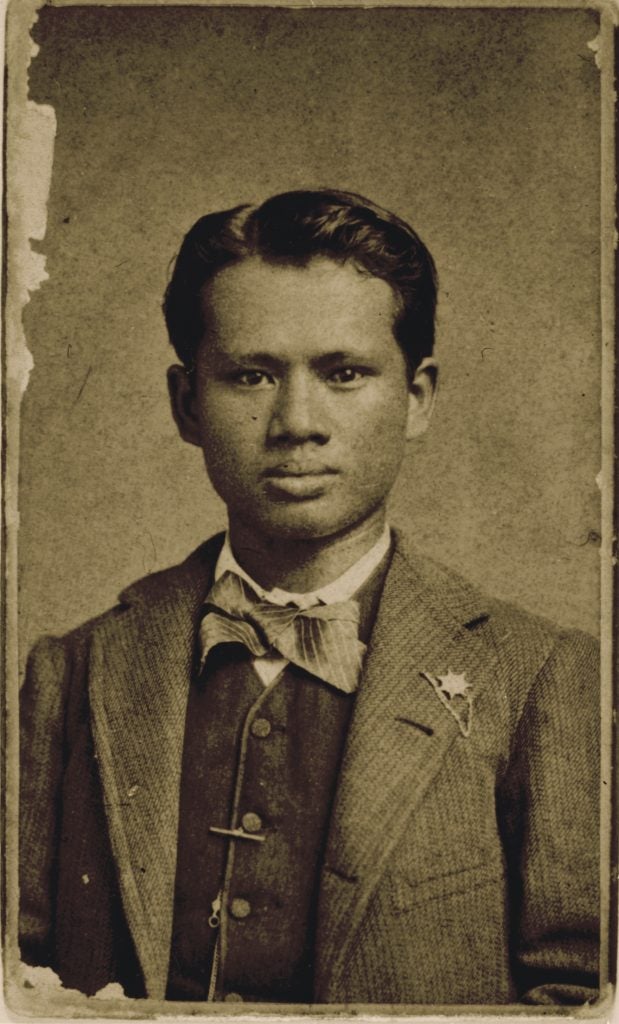
1885
FIRST ASIAN GRADUATE
Song Jiashu, also known as “Charles Jones Soong,” a student from China, was the first Asian student to graduate from Vanderbilt with a theology certificate from the Biblical Department.
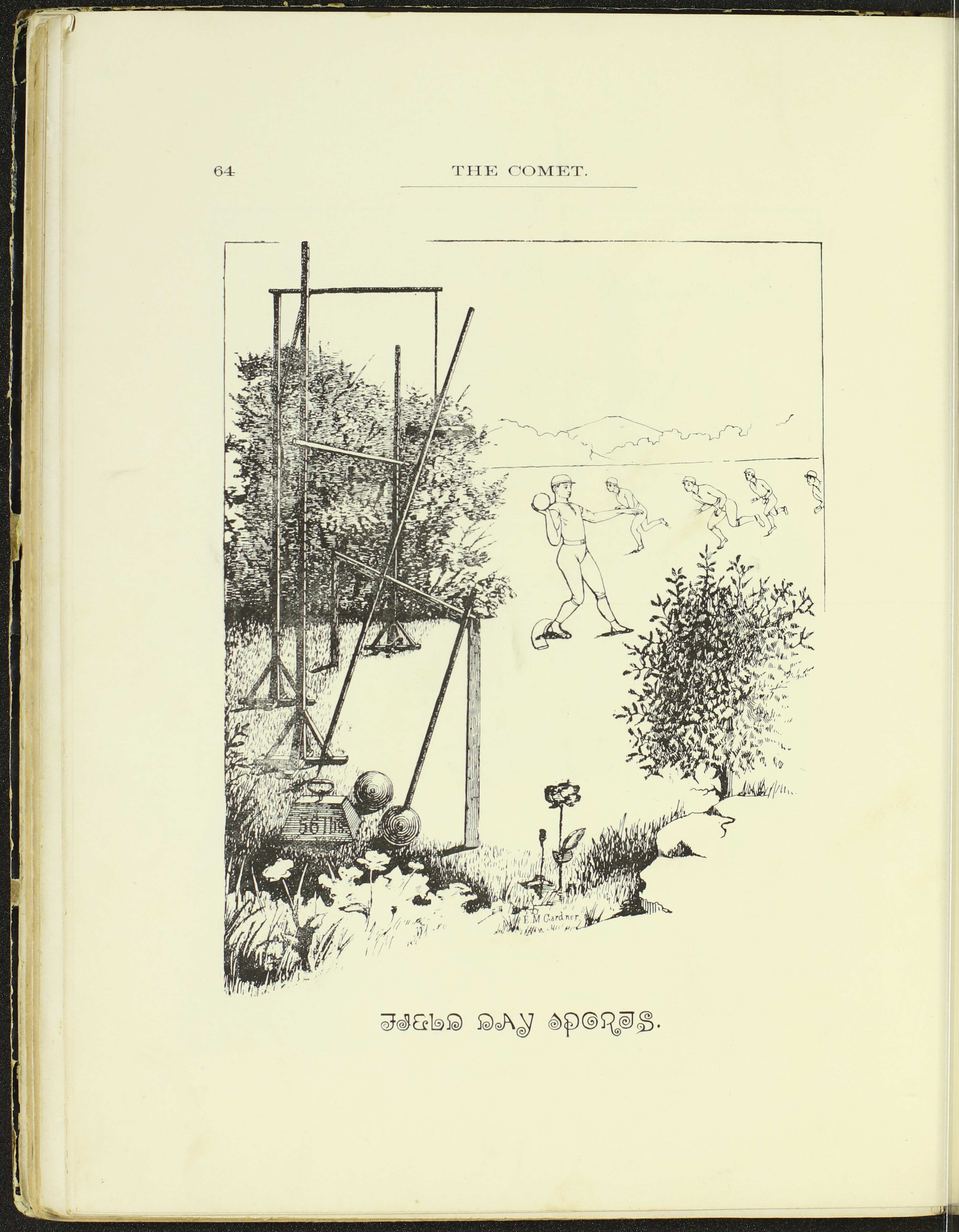
1886
VANDERBILT ATHLETIC ASSOCIATION
The Vanderbilt University Athletic Association (V.A.A.) was formed with Dr. W. M. Baskerville serving as president. In the early days, most of the student body was included in the membership. The V.A.A. would oversee the sports played on campus including baseball, bicycling, tennis and track and field events. The first official organized athletic event involving Vanderbilt was the first annual Field Day held on May 7, 1886 at Sulphur Springs Park (Sulphur Dell).
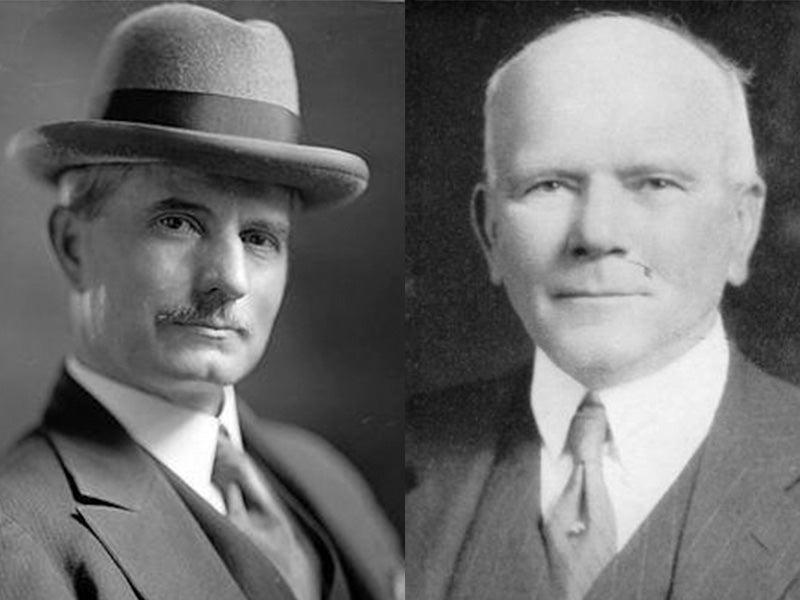
1889
FIRST NATIVE AMERICAN STUDENTS
William Wirt Hastings and William P. Thompson, both members of the Cherokee Nation, graduated from Vanderbilt Law School in 1889.
1890
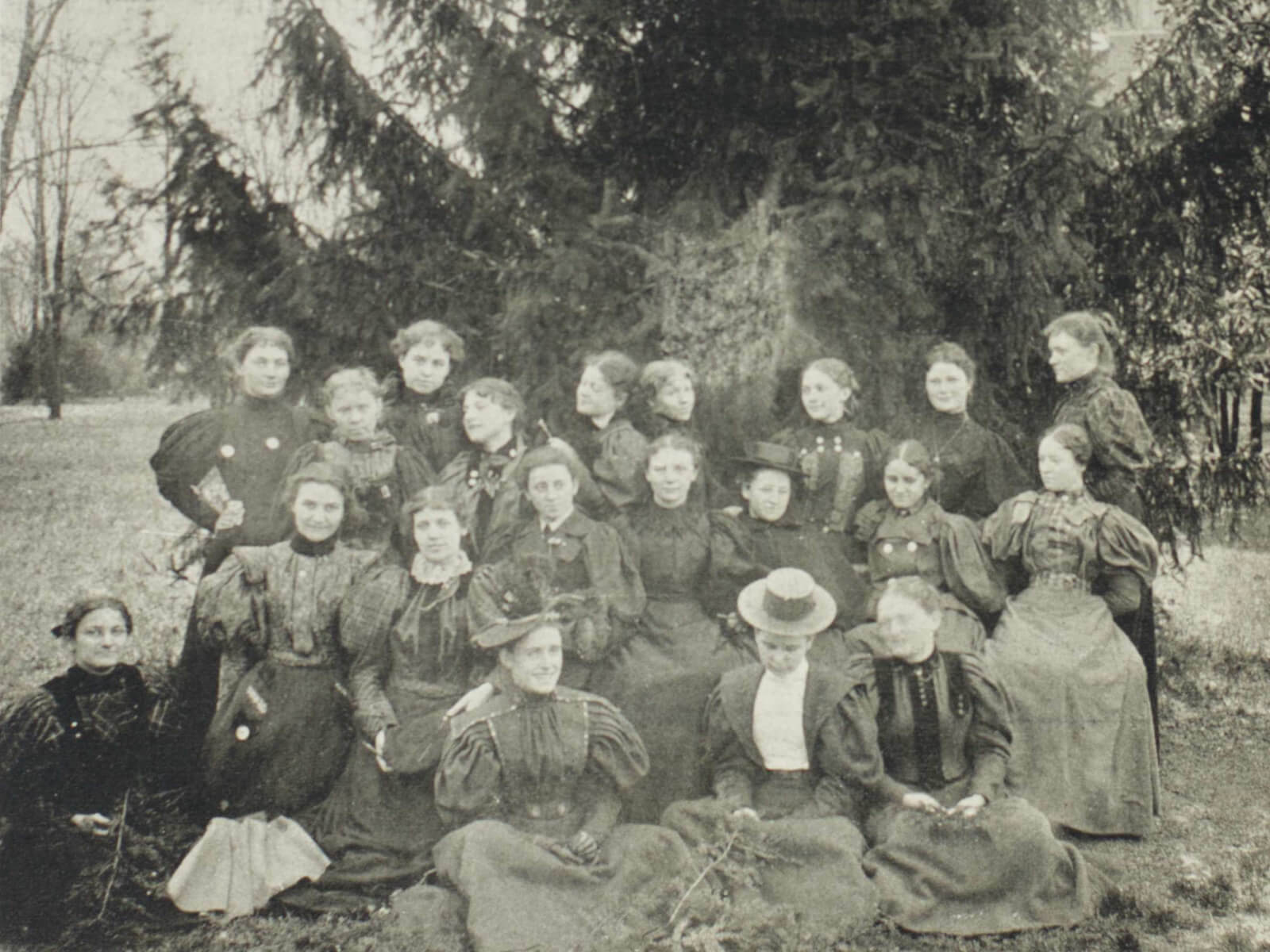
1892 - 1901
WOMEN GAINED LEGAL ACCESS TO CAMPUS
From 1892 – 1901, women legally gained access to campus except for the dorms. In 1894, the faculty and board allowed women to compete for academic prizes. By 1897, four-five women entered with each freshman class.
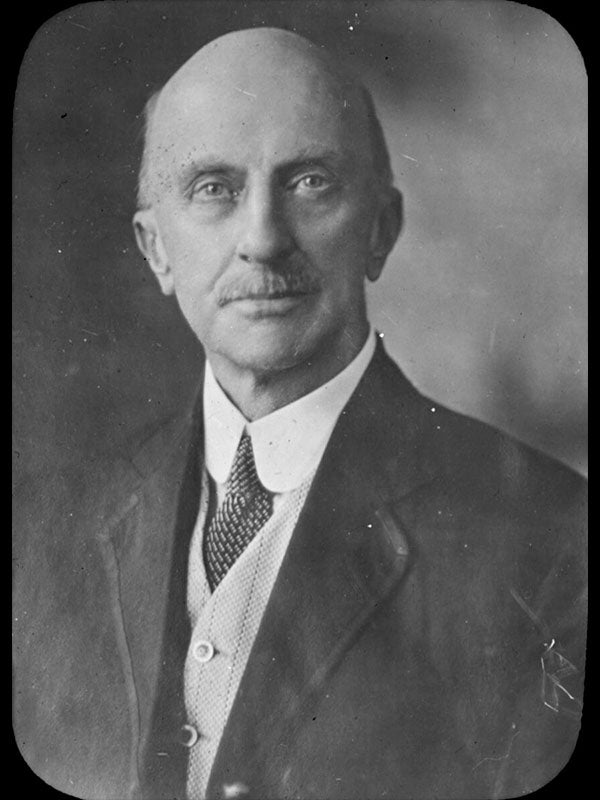
1893 - 1937
CHANCELLOR KIRKLAND
James H. Kirkland served as the second chancellor from 1893 – 1937. He was known for his bold and courageous leadership in the aftermath of the 1905 fire that nearly destroyed Old Main.
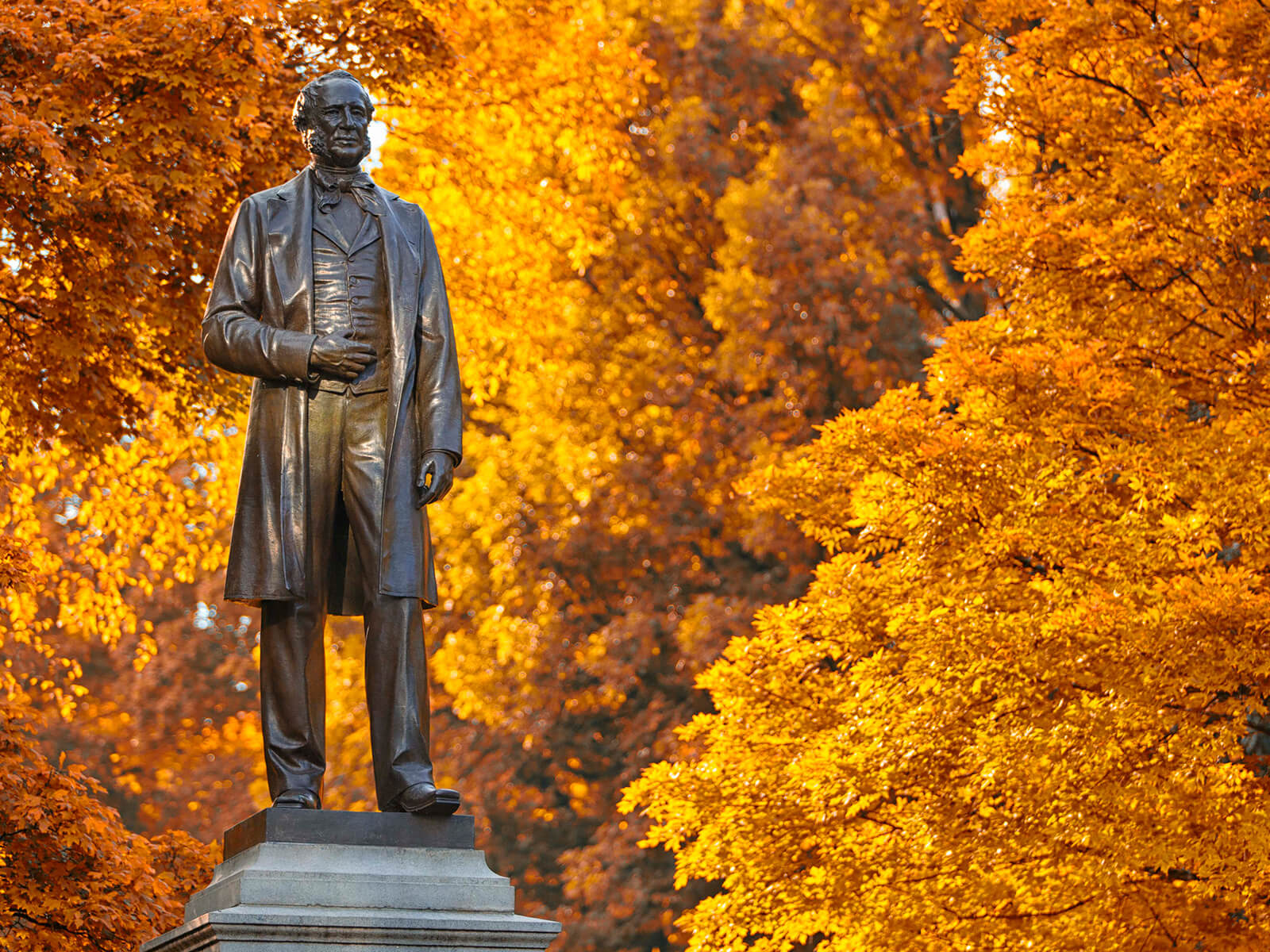
1897
STATUE OF CORNELIUS VANDERBILT
The bronze statue of Cornelius Vanderbilt by Italian sculptor Giuseppe Moretti was first displayed near the Parthenon replica in what is now Centennial Park during the Tennessee Centennial Exposition. When the Exposition closed that fall, the statue was installed on campus and currently stands in front of Kirkland Hall.
1900
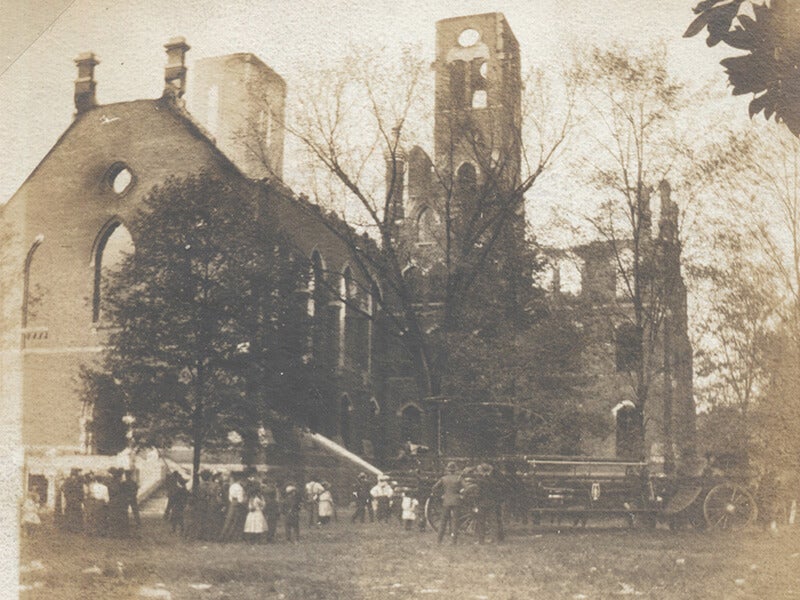
1905
MAIN BUILDING FIRE
On April 20, 1905, fire broke out in Old Main, the heart and soul of Vanderbilt life. Throughout the afternoon, while the fire raged, students made every effort to save books by throwing them out the window. Their efforts resulted in saving 4,000 books. The Vanderbilt community persevered and created makeshift classrooms across the campus until permanent classrooms were repaired.
1907
ALMA MATER
In 1907, Vanderbilt’s current Alma Mater was penned by Robert F. Vaughn who was president of the Vanderbilt Glee Club. Vaughn’s lyrics were set to the tune of “Annie Lisle,” a popular 1857 ballad by songwriter H.S. Thompson. Vanderbilt’s Alma Mater was first sung at Commencement in 1913.
1910
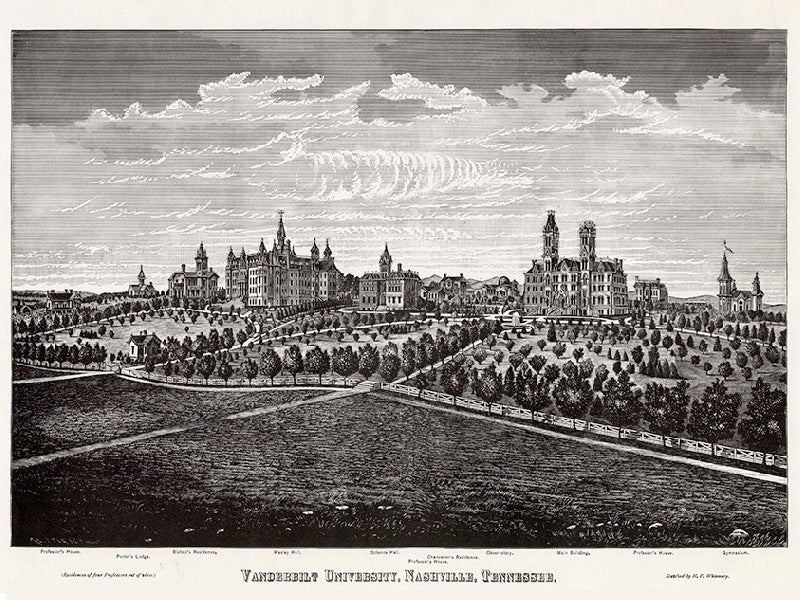
1914
SEPARATION FROM METHODIST EPISCOPAL CHURCH
For the first 40 years of its existence, Vanderbilt was under the auspices of the Methodist Episcopal Church, South. The Vanderbilt Board of Trust severed its ties with the church in June 1914 as a result of a dispute with the bishops over who would appoint university trustees.
1920
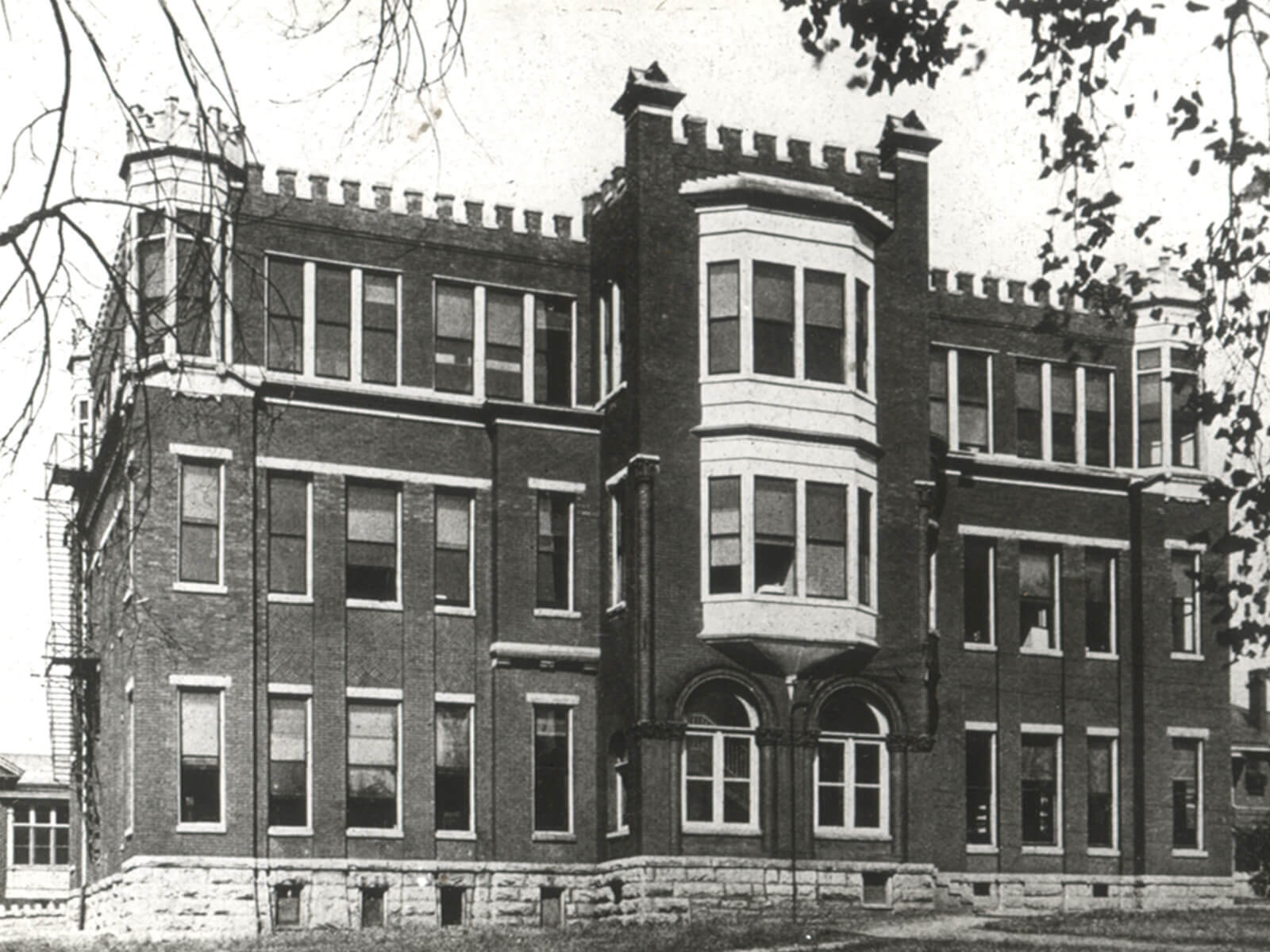
1920
SCHOOLS OF DENTISTRY AND PHARMACY CLOSE
Tracing their origins back to 1879, the Vanderbilt Schools of Dentistry and Pharmacy permanently closed in the 1920s from a lack of enrollment following World War I.
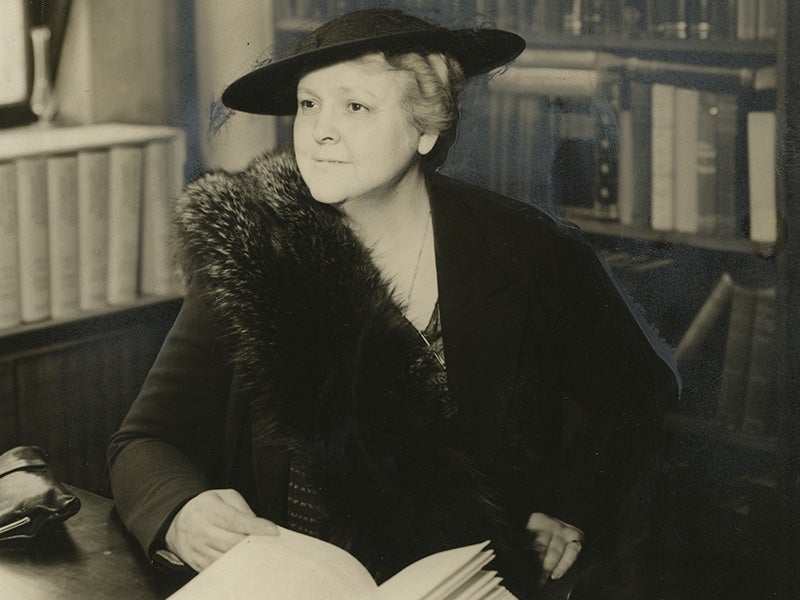
1925
FIRST DEAN OF WOMEN
Ada Bell Stapleton became the first official Dean of Women and the first woman appointed as professor of English at Vanderbilt.
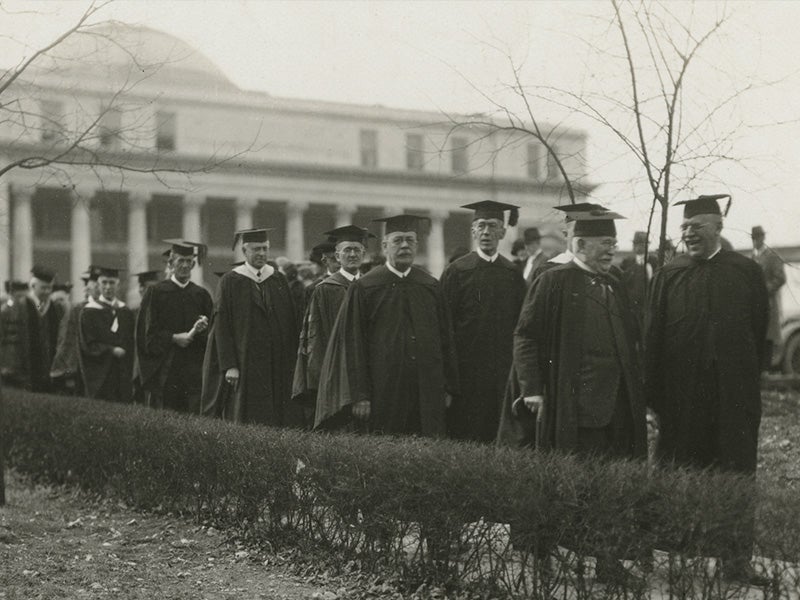
1925
VANDERBILT SEMI-CENTENNIAL
Vanderbilt celebrated its 50th anniversary in 1925 through ceremonies, meetings and lectures, and the dedication of the new Medical School and Hospital.
1930
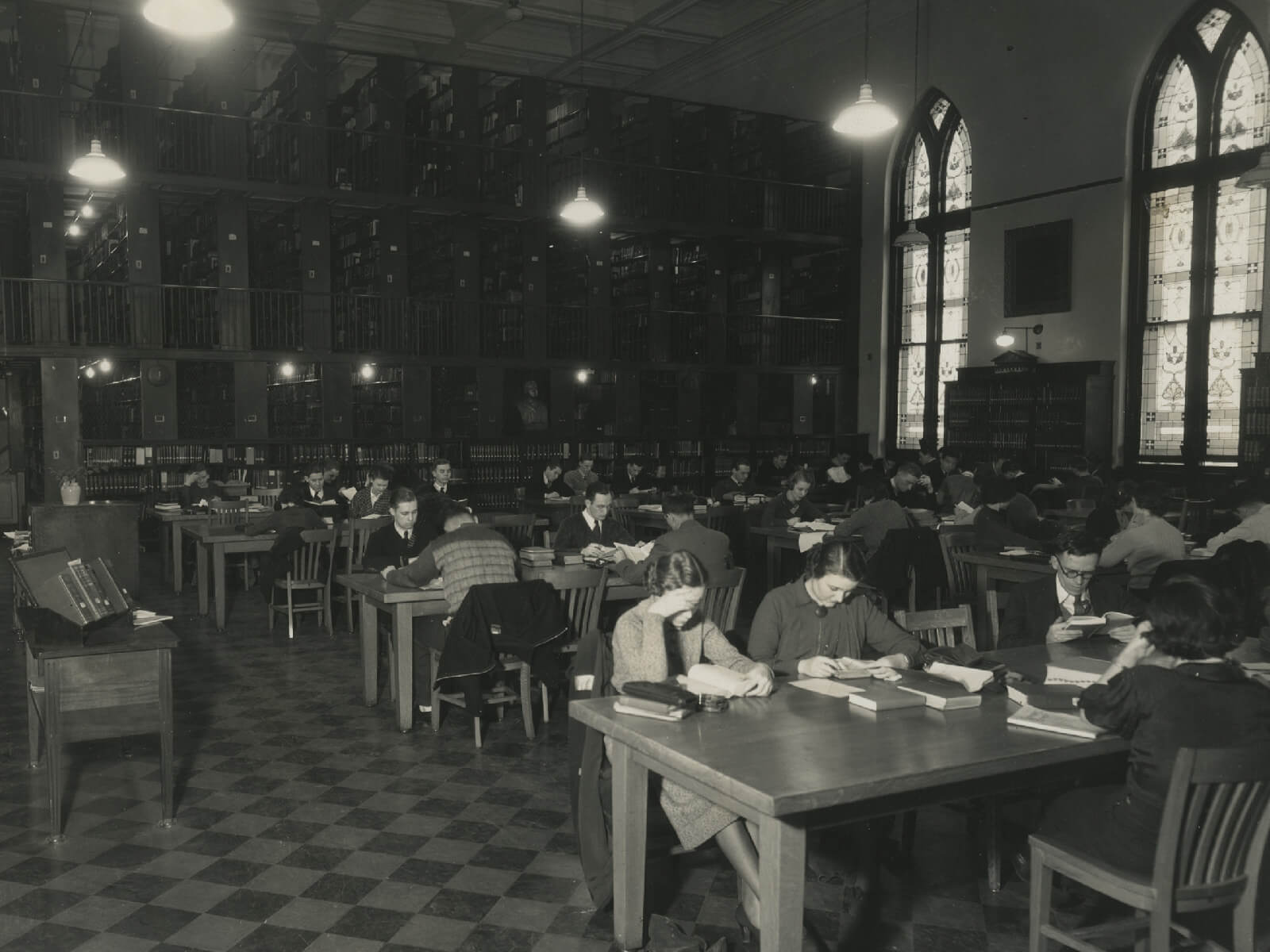
1935
THE GRADUATE SCHOOL
Vanderbilt modernized its graduate studies in 1935 by establishing a separate Graduate School with its own dean. Oliver C. Carmichael served as the first dean of the Graduate School.
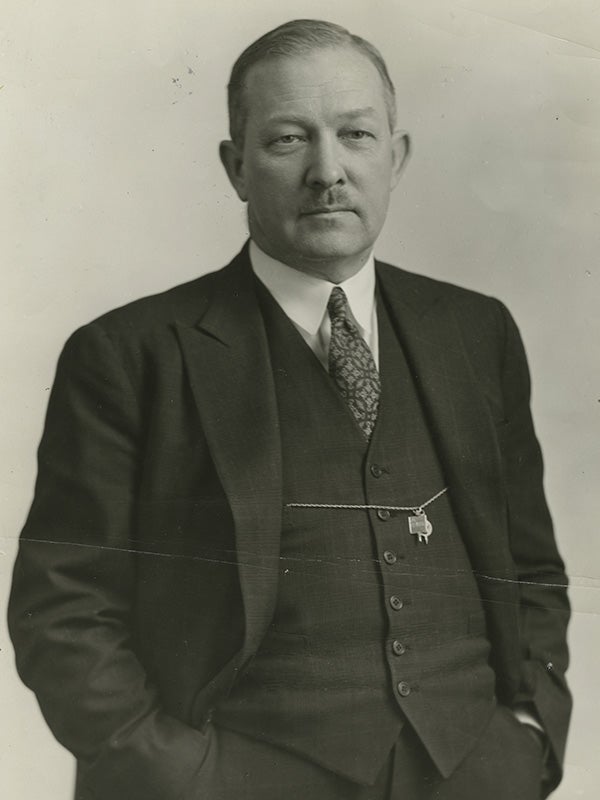
1937 - 1946
CHANCELLOR CARMICHAEL
Oliver C. Carmichael was installed as the third chancellor and served until 1946. He was known for being a consummate politician and achieving the establishment of Vanderbilt’s Joint University Libraries serving Vanderbilt, Peabody and Scarritt College.
1940
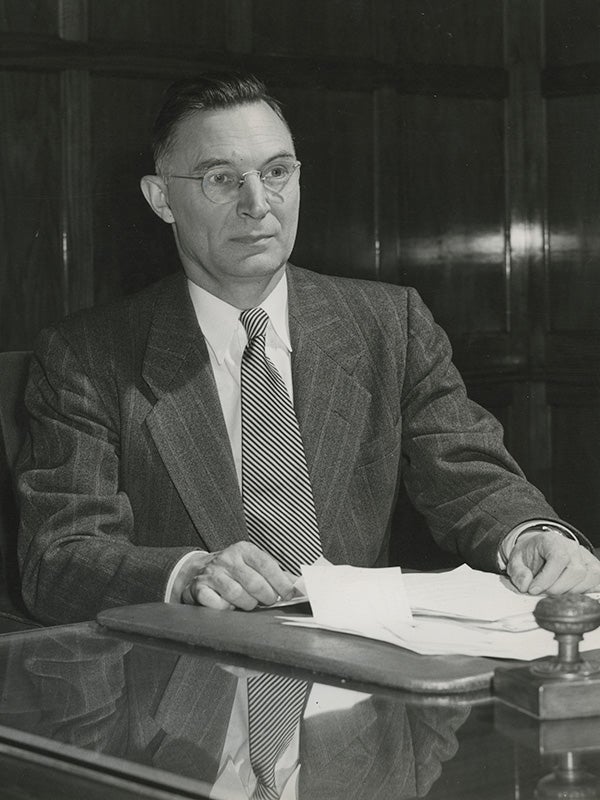
1946 - 1963
CHANCELLOR BRANSCOMB
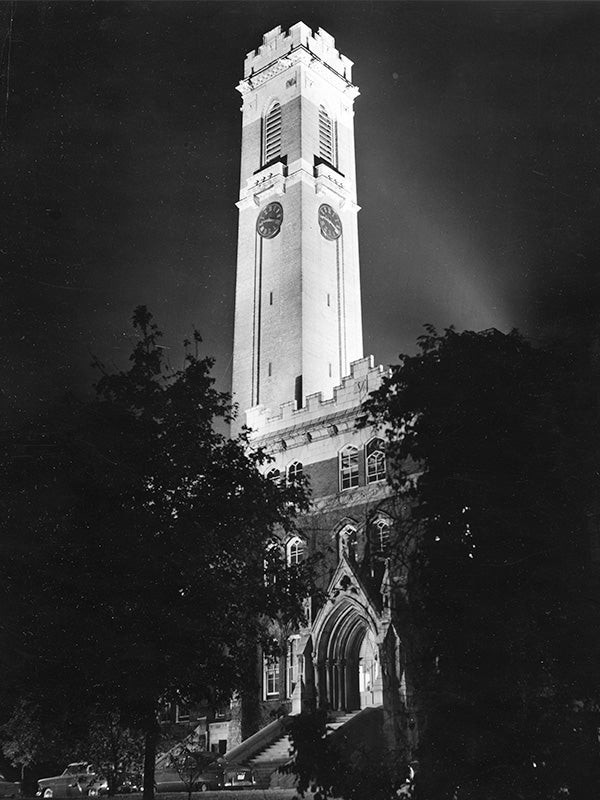
1949
AAU MEMBERSHIP
National recognition of the university’s status came in 1949 with the election of Vanderbilt to membership in the select Association of American Universities.
1950
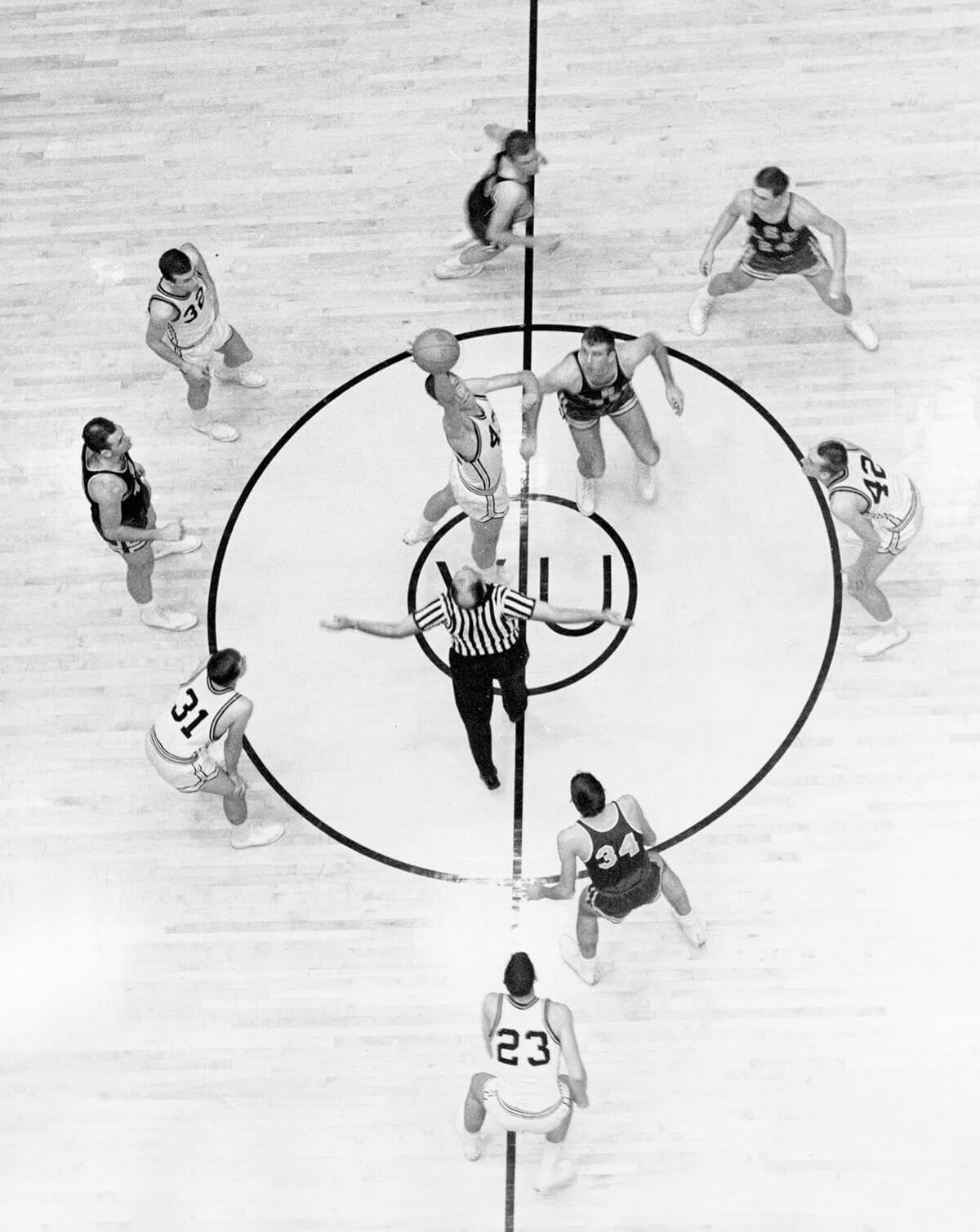
1950 - 1952
MEMORIAL MAGIC
The construction of Memorial Gym began in 1950 and the dedication game was played on Dec. 6, 1952, against the University of Virginia — a 90-83 victory for the Commodores. Originally designed to hold 6,583 spectators, the gym has since undergone multiple expansions and has more than doubled its seating capacity to 14,316. The unique design of the building creates a unique home-court advantage for the men’s and women’s basketball teams known as Memorial Magic.
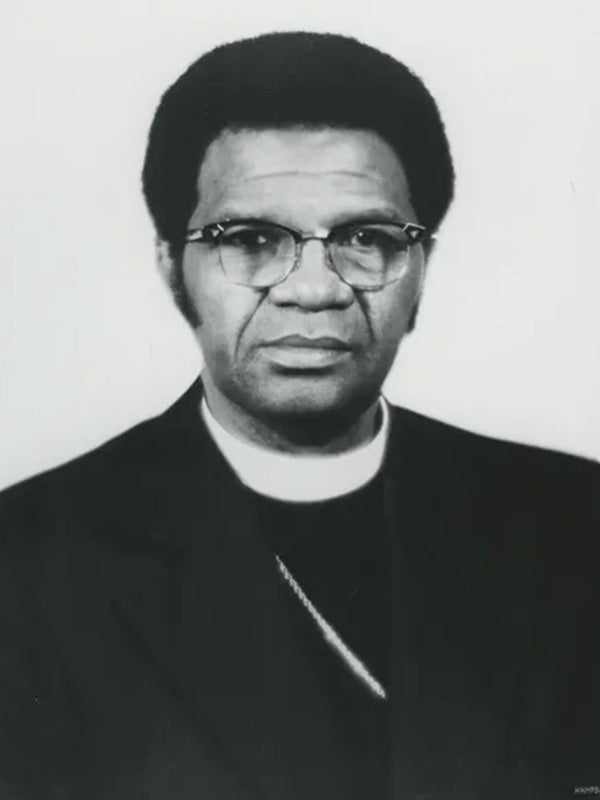
1954
FIRST AFRICAN AMERICAN GRADUATE
Joseph Johnson was the first African American to integrate into Vanderbilt and the first to graduate when he received a bachelor of divinity in 1954, as well as being the first to receive a doctorate degree in 1958. In 1984, the Bishop Joseph Johnson Black Cultural Center was dedicated to honor his legacy.
1960
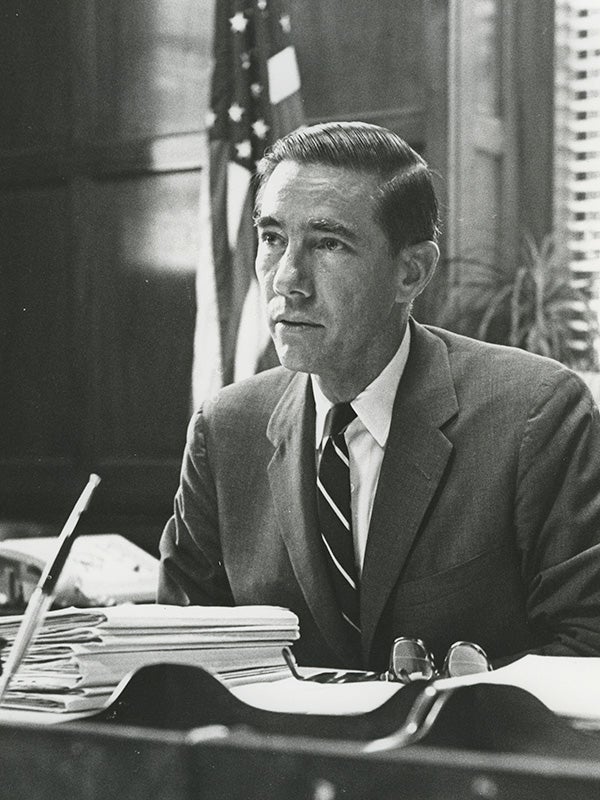
1963 - 1982
CHANCELLOR HEARD
Alexander Heard served as the fifth chancellor from 1963 – 1982. Heard successfully led a historic campaign which raised $180 million. When Heard joined Vanderbilt in 1963, he had inherited seven schools; by the end of his tenure as chancellor in 1982, Vanderbilt’s current complement of ten schools was in place. A lifelong proponent of free speech, Chancellor Heard believed that “the university’s obligation is not to protect students from ideas, but rather to expose them to ideas, and to help make them capable of handling and, hopefully, having ideas.”
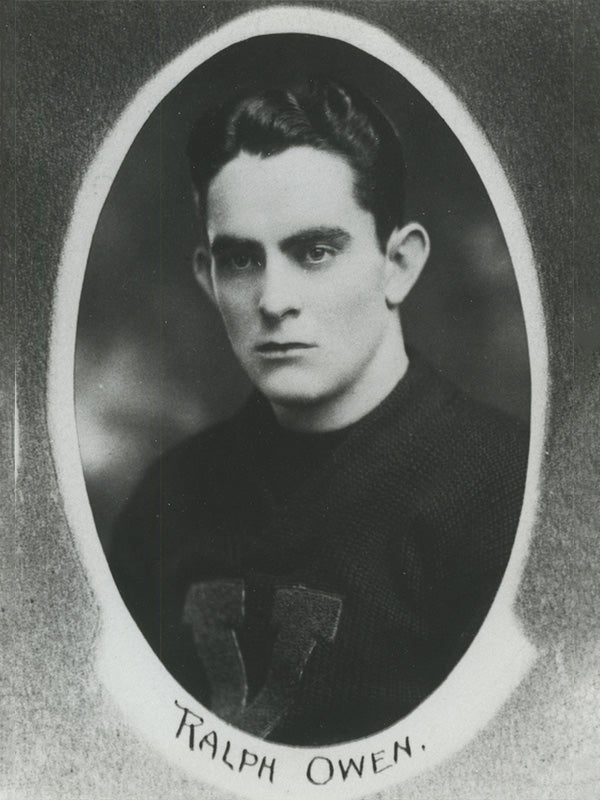
1969
OWEN GRADUATE SCHOOL OF MANAGEMENT
The Vanderbilt Graduate School of Management was founded in 1969 and renamed after Lulu Hampton Owen and alumnus Ralph Owen, in 1977.
1970
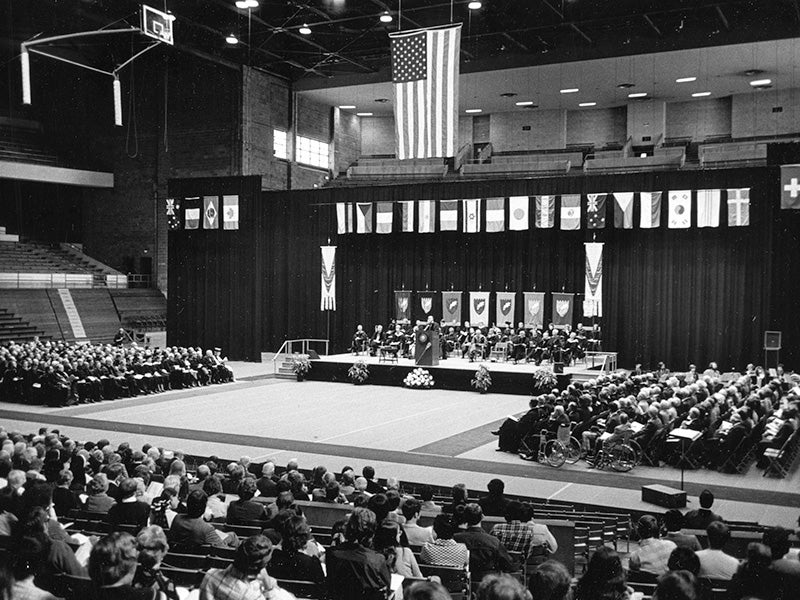
1973
VANDERBILT CENTENNIAL CELEBRATION
Vanderbilt celebrated its 100th anniversary in 1973. The centennial celebration lasted two and half years featuring ceremonies, exhibits, and the planting of the Centennial oak.
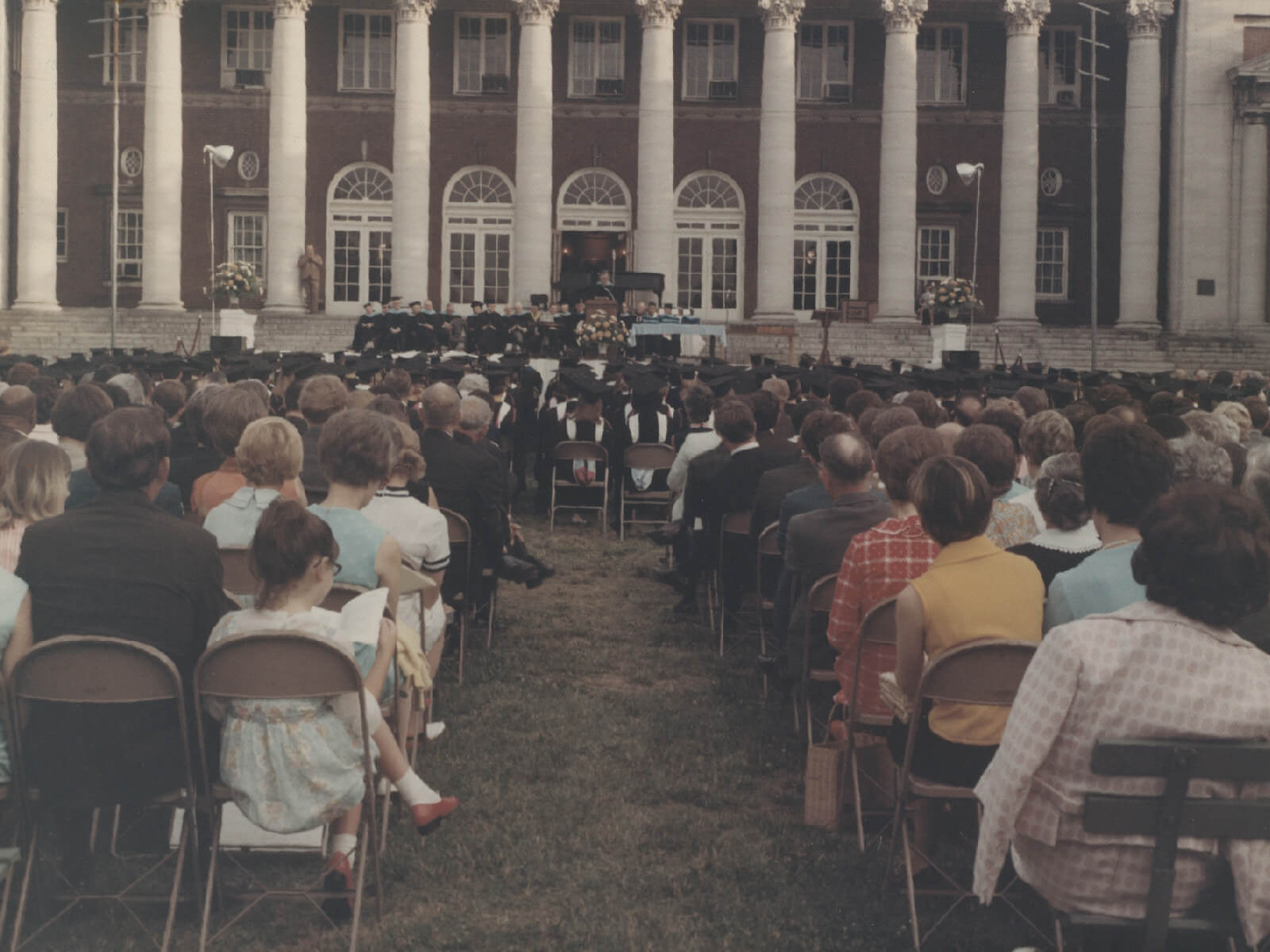
1979
PEABODY COLLEGE OF EDUCATION
The Vanderbilt Board of Trust approved a merger with the Peabody College. Peabody traces its history to 1785. It moved to its present location in the early 1900s.
1980
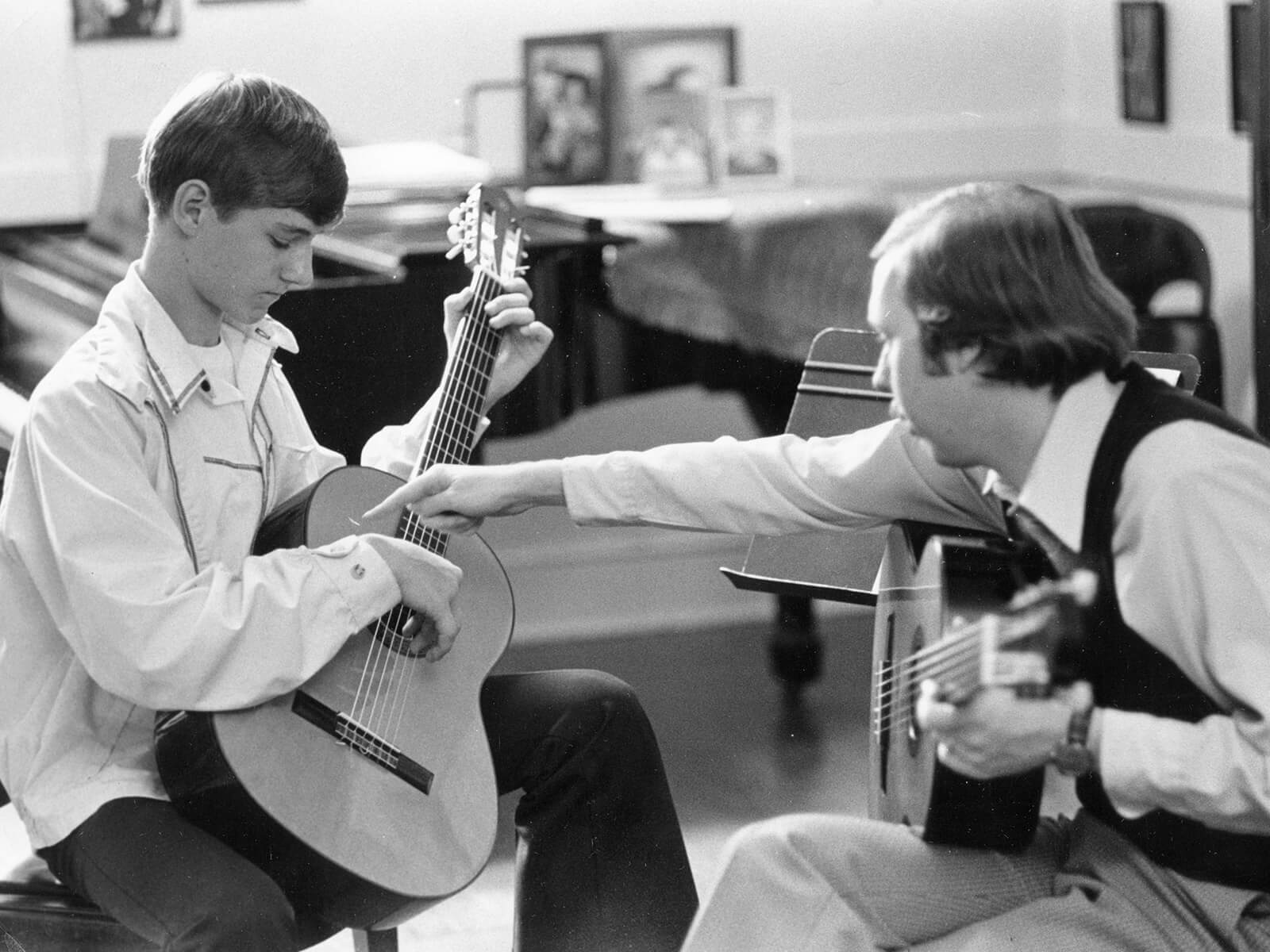
1981
NEW MUSIC SCHOOL
Established in the 1960s, the Blair School of Music merged with Vanderbilt University in the 1980s. The Board of Trust authorized the development of Blair to the status of a degree-granting school of the university and the first class of Bachelor of Music students matriculate.
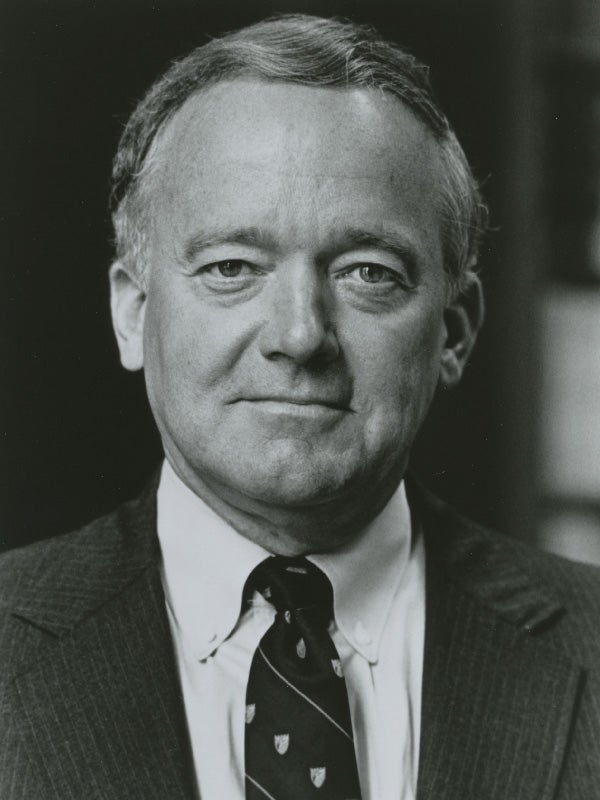
1982 - 2000
CHANCELLOR WYATT
Joe B. Wyatt served as the sixth chancellor from 1982 – 2000. Wyatt is known for expanding the meaning of a “national university” by leading efforts to improve elementary and secondary education in the US. In 1989, Vanderbilt’s undergraduate programs were ranked among the top 25 national universities overall in the U.S. News & World Report, placing 24th.
1989
NATIONAL ARBORETUM
The history of the arboretum can be traced back to the university’s founding. Shortly after the university’s founding, Bishop Holland McTyeire carried out one of the largest tree planting campaigns planting over 200 trees in a one month period. By the 1890s, the campus was an island of trees surrounded by flat agricultural fields. In 1989, Vanderbilt was granted official arboretum status by the American Association of Botanical Gardens and Arboreta. Today, the arboretum boasts 190 species of trees and shrubs.
1990
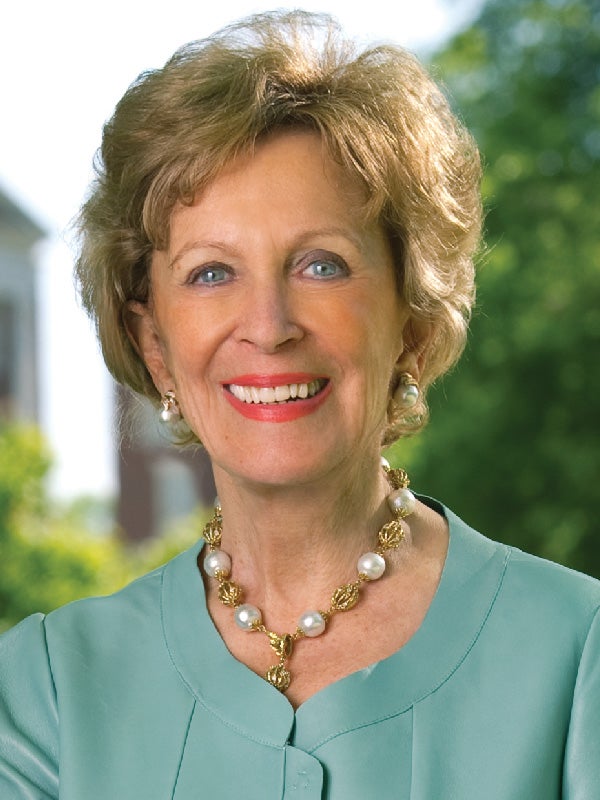
1999
FIRST FEMALE BOARD OF TRUST CHAIR
Martha Rivers Ingram chaired the Vanderbilt Board of Trust from 1999 – 2011. As Vanderbilt’s first female Board Chair, Mrs. Ingram was responsible for the establishment of the Residential College system at Vanderbilt and an instrumental figure in the launch of Opportunity Vanderbilt, furthering the university’s commitment to equitable and affordable education.
2000
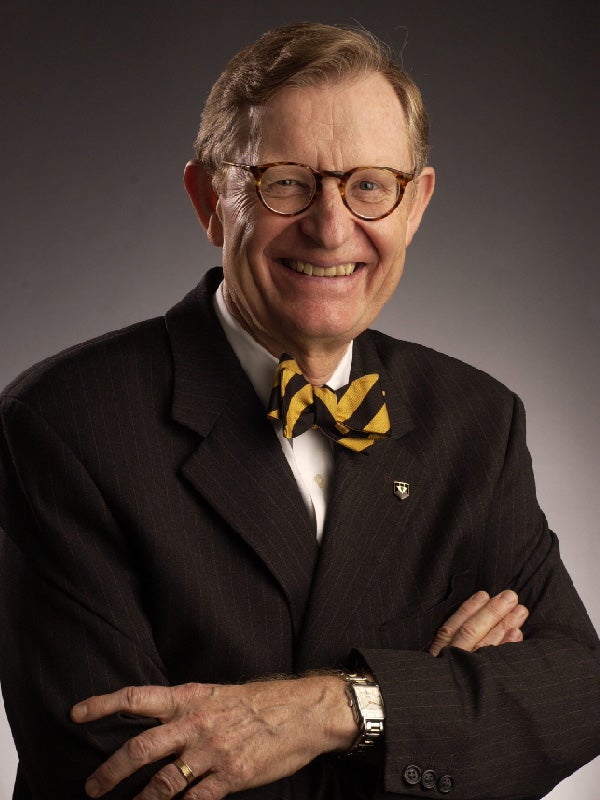
2000 - 2007
CHANCELLOR GEE
Gordon Gee served as Vanderbilt’s seventh chancellor from 2000 – 2007. Upon assuming the chancellorship at Vanderbilt, Gee renewed Vanderbilt’s commitment to being one of a small number of private universities that admit applicants regardless of their ability to pay and that meet the full demonstrated financial need of all students so that a Vanderbilt education is affordable to all. Additionally, the campus landscape changed visibly under Gee’s leadership, as more than $700 million in new facilities were completed or begun.
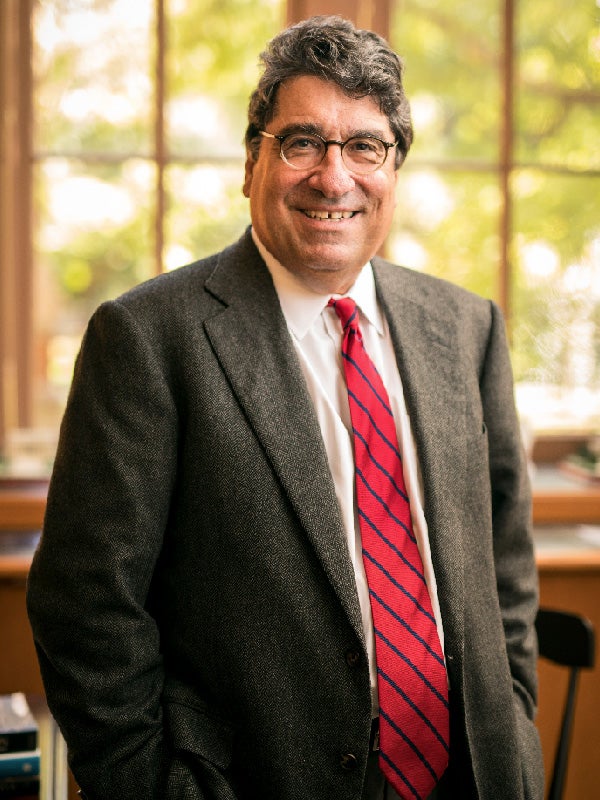
2008 - 2019
CHANCELLOR ZEPPOS
Nicholas S. Zeppos was named the eighth chancellor in 2008 and served in this role until 2019. Zeppos is recognized as a distinguished legal scholar, teacher and executive and for elevating Vanderbilt’s mission as a top academic research university. His efforts furthered the school’s commitment to making education accessible, inclusive and immersive. Under his leadership, the university launched Opportunity Vanderbilt financial aid program.
2008
OPPORTUNITY VANDERBILT
In 2008, Vanderbilt implemented Opportunity Vanderbilt, a pioneering initiative that provides loan-free tuition to the nation’s most talented and deserving undergraduate students, regardless of their background and financial means. Opportunity Vanderbilt has been recognized as the nation’s best financial aid program.
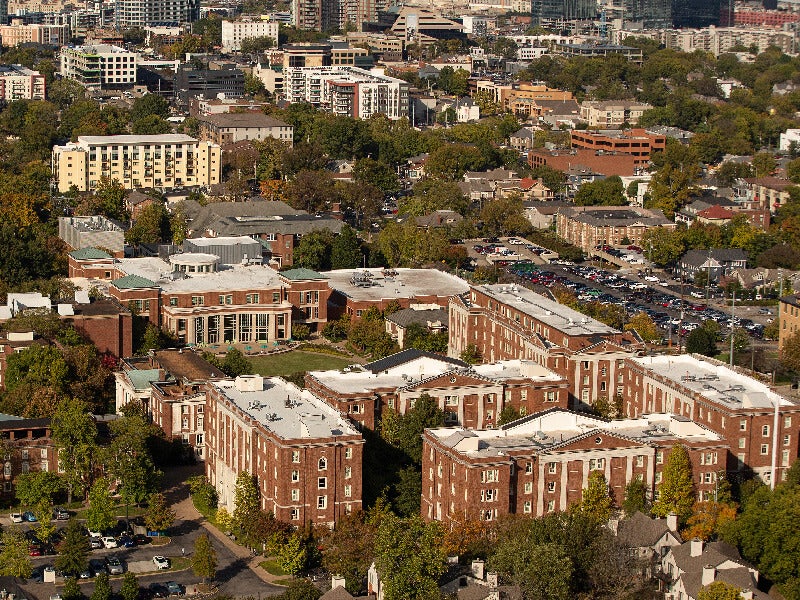
2008
RESIDENTIAL COLLEGES
The Martha Rivers Ingram Commons opened in 2008, and it is the residential campus for all first-year students. Beyond a traditional dormitory, each of the 10 houses allows students to get to know other students, faculty, and staff closely and become more connected and involved in their residential community and in the broader Vanderbilt community. After the first year, students transition to another residential college for sophomore year and beyond.
2010

2016
MEDICAL CENTER SEPARATION
Vanderbilt University and the Vanderbilt University Medical Center separated legally and financially. Overseen by the Board of Trust, the separation was a strategic and prescient decision where both institutions continue to realize growth and success.
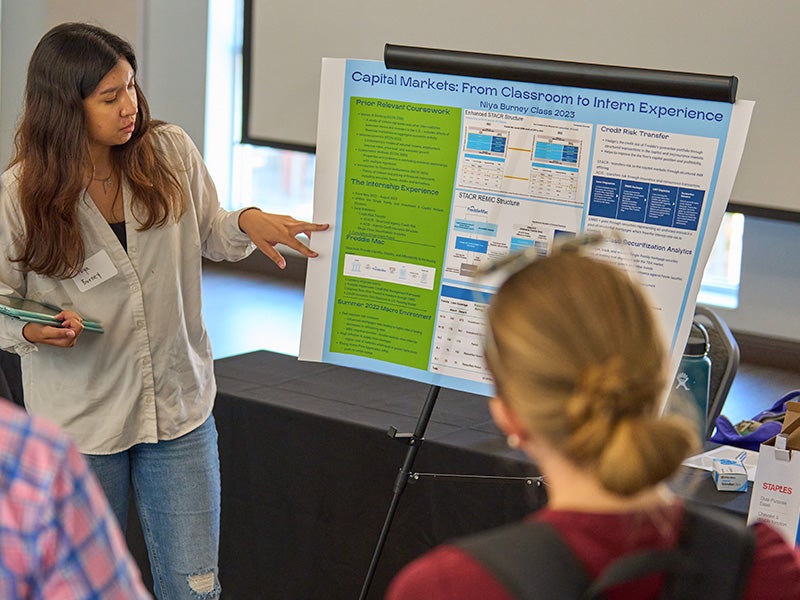
2016
IMMERSION VANDERBILT
Immersion Vanderbilt was launched to provide undergraduates with the opportunity to pursue their passions and cultivate intellectual interests through experiential learning. This intensive learning experience takes place in and beyond the classroom and concludes with the completion of a final, culminating project.
2020
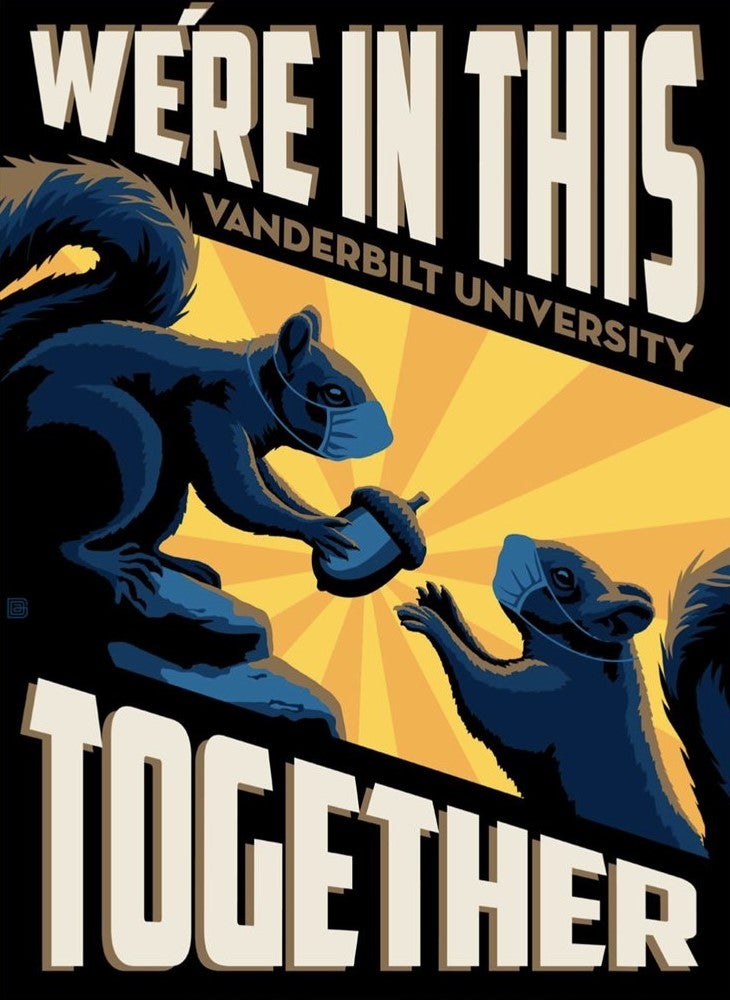
2020
COVID-19 RESPONSE
The upheaval of the COVID-19 pandemic gave rise to opportunities to step up, such as the Vanderbilt’s Vaccine Center playing an instrumental role in developing the AstraZeneca vaccine and the rapid creation of the Vanderbilt University Medical Center’s COVID-19 unit.
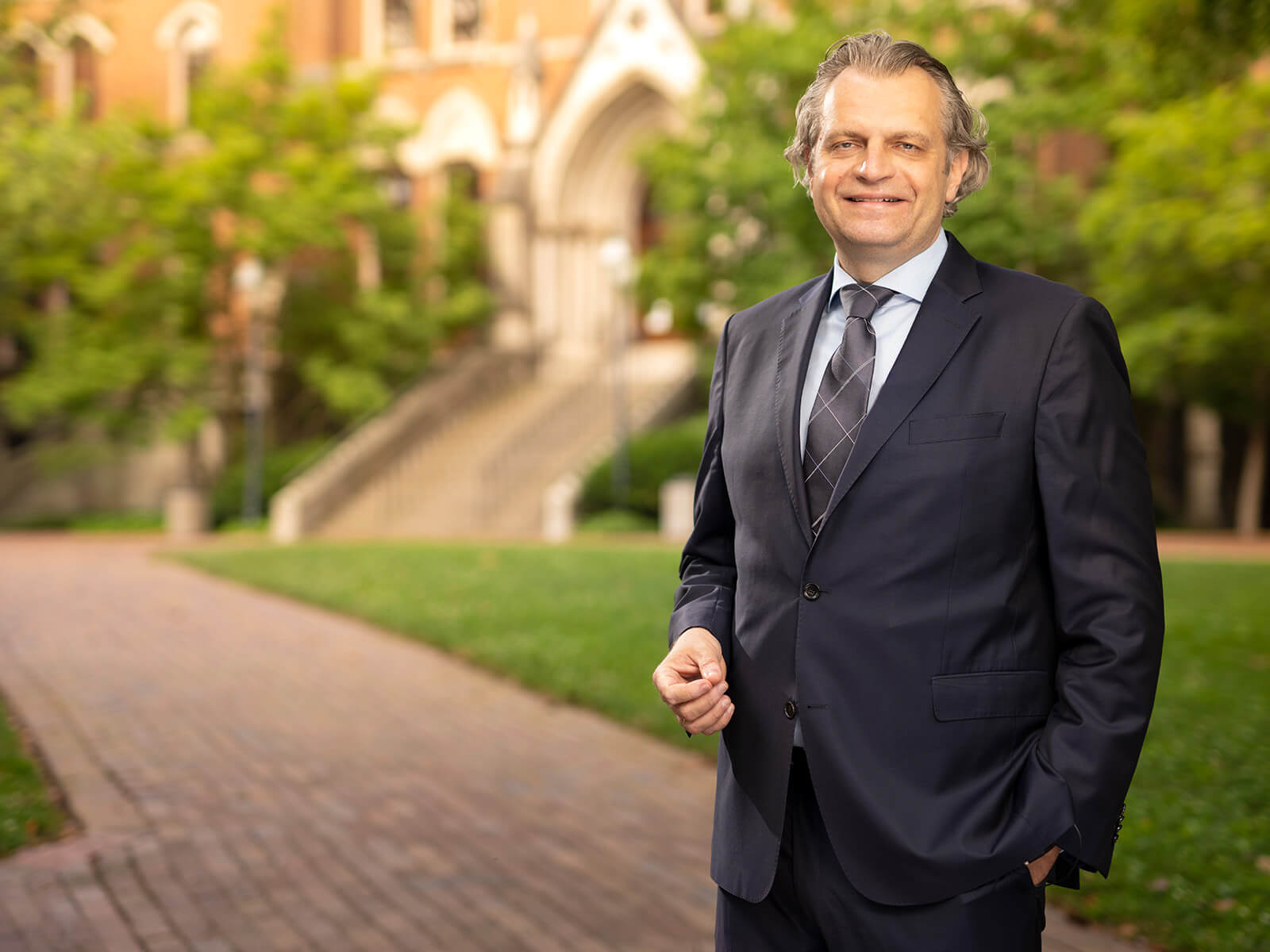
2020 - PRESENT
CHANCELLOR DIERMEIER
Daniel Diermeier was named as the ninth chancellor in 2020. A visionary leader and internationally renowned political scientist and management scholar, Diermeier immediately committed to safely and successfully bringing students back to campus during the COVID-19 pandemic. Chancellor Diermeier has led an ambitious program of expansion and improvement in the spirit of Vanderbilt’s motto, Crescere aude, or “dare to grow.” Under his leadership, the university has risen in stature, topped the $1 billion mark in research expenditures, successfully launched a capital campaign for Vanderbilt and reaffirmed its long-standing committment to free expression and civil discourse.
2021 - PRESENT
VANDY UNITED CAPITAL CAMPAIGN
Launched in 2021, Vandy United is the largest undertaking of its kind in school history and represents a bold step for Vanderbilt Athletics. A $300 million investment in student athletes and athletics programs, the Vandy United Fund will support major facilities and operational enhancements.
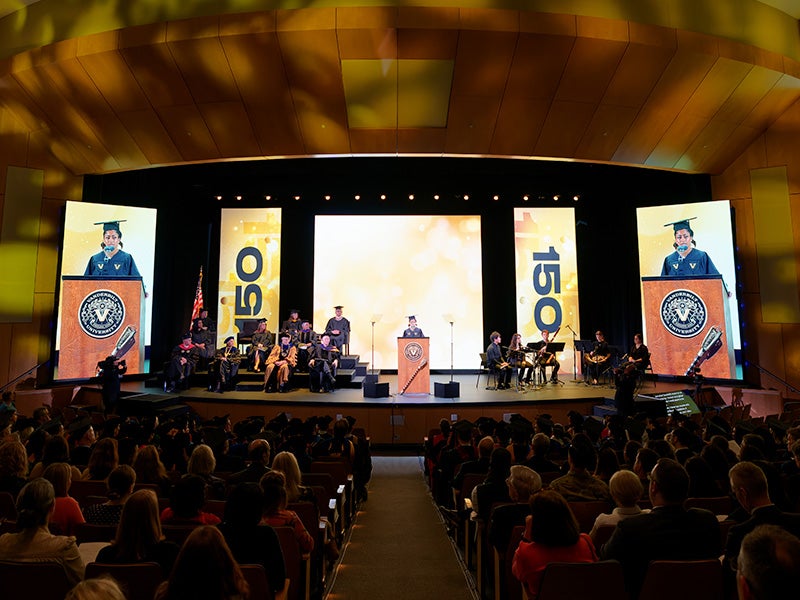
2023
SESQUICENTENNIAL
In March 2023, Vanderbilt University launched its Sesquicentennial celebration with a ceremony. This significant milestone in our history brought together our faculty, staff, students, alumni and friends to reflect on the last 150 years as we look forward to the next 150.
2023
DARE TO GROW
In April 2023, Vanderbilt launched the $3.2 billion Dare to Grow campaign — the most ambitious fundraising initiative in its history. The Dare to Grow campaign, including Vandy United, will power the university’s most exciting and essential work to date. The campaign embodies three essential pathways for giving: Destination Vanderbilt, Discovery Vanderbilt, and One Vanderbilt.